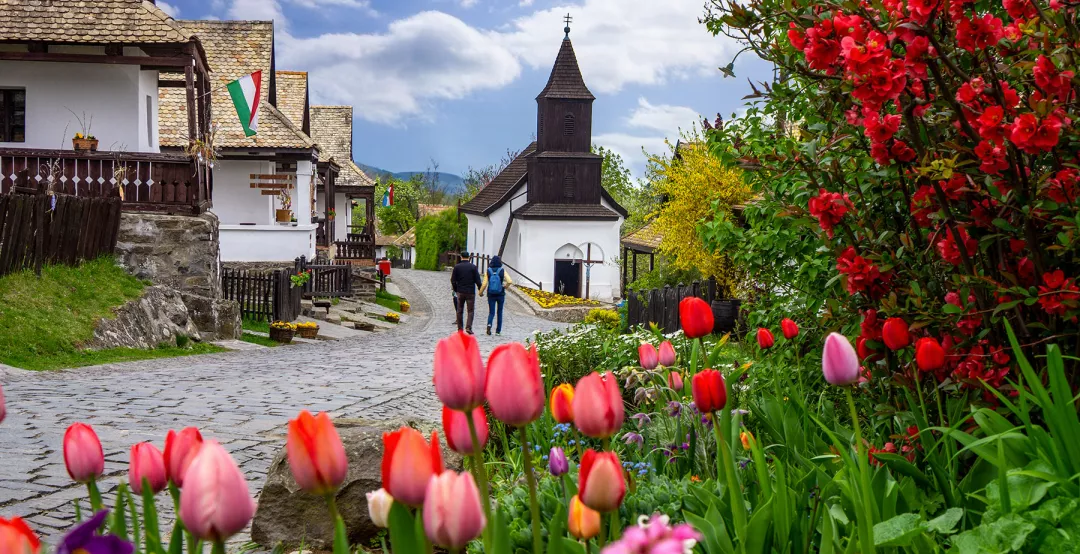LEADER in Hungary covers 100% of the rural population
Hungarian LAGs cover 100% of the country's rural areas, and implementation of the LEADER programme started in 2023, resulting in 105 LAG Local Development Strategies being approved and launched.

Hungary's Presidency of the Council of the European Union holds priorities that LEADER Local Action Group (LAG) territories can benefit from. These include economic development initiatives promoting comprehensive sustainable growth strategies and rural youth support. We asked the Hungarian Managing Authority to explain more about how the present LEADER period has started and which aspects of the EU Presidency can be particularly relevant for LAGs.
Hungarian LAGs cover 100% of the country's rural areas, and implementation of the LEADER programme started in 2023 as part of the Hungarian CAP Strategic Plan (CSP). This resulted in 105 LAG Local Development Strategies (LDSs) being approved and launched.
LEADER's bottom-up partnership approach in Hungary brings together public, private and civil society stakeholders to find shared solutions for the development of the rural economy and society. There are a broad range of objectives in the LDSs, including the start-up, maintenance, and strengthening of micro-enterprises in rural areas; development of local products and services; application of renewable energy; climate-friendly solutions; water retention and environmental protection at the local level; infrastructural development of community life; community marketinag; community spaces; and preservation of built and cultural heritage.
The HU24EU Presidency programme is encouraging the Agriculture and Fisheries Council to take advantage of the institutional transition period and guide the new Commission in formulating the rules of the Union’s post-2027 agricultural policy for a competitive, crisis-proof and farmer-friendly agriculture.
Consequently, promoting sustainable agriculture is a key principle for HU24EU. A rational balance is sought for the strategic objectives of the European Green Deal, the stabilisation of agricultural markets, and a decent standard of living for farmers. It is known that LEADER can help farmers through supporting topics including local food initiatives and environmental action. LEADER also provides scope to spotlight and support other priorities promoted by HU24EU, including the ageing society, green and digital transition, rural depopulation, and the changing world of work.
Concerning transport, a HU24EU priority is improving connectivity, extending transport networks North-South, and creating new intermodal hubs. This can contribute to rural development by improving transport links and economic integration between LAG territories and urban regions. Investing in transport will also help address demographic challenges regarding rural depopulation, with which LAGs are greatly involved.
Rural youth
Brain-drain and related negative impacts on rural demography remain common issues being addressed through the Hungarian LEADER LDSs. HU24EU recognises this, and, in the framework of the 10th cycle of the EU Youth Dialogue, includes an emphasis on young people in rural areas. The aim is to find solutions for young people restricted in rural or isolated areas where fewer opportunities exist. This includes devoting particular attention to mental health, and highlighting younger generations' strategic role in promoting longer-term visions and ambitions for rural areas.
Hence, the Hungarian Presidency plans to table Council Conclusions on providing opportunities for young people living in rural and remote areas. Given that the EU Youth Dialogue was launched during the previous Spanish-Belgian-Hungarian Trio Presidency in 2010–2011, it is timely to evaluate the 10 cycles so far and to formulate guidelines for the future.
Considering the results and lessons learned at the EU level, Hungary wishes to contribute to the promotion of a meaningful and genuine dialogue with young people, and intends to adopt a Council Resolution on the experiences accumulated during the 10th cycle of the EU Youth Dialogue. Furthermore, during the Hungarian Presidency, it is planned to adopt a Council Resolution on the Work Plan for the EU Youth Strategy 2025–2027, which will set out the vision for the next two cycles of the EU Youth Dialogue.
Many aims of the LDSs align with youth-centred goals, such as, through funding support, targeting retention of young people, helping them to settle and preventing emigration. Smart Village strategies are also intended to help make LEADER communities younger, as well as smarter.
Examples of Hungarian LEADER support for young people during the 2014-2022 programming period include:
Dedicated youth support by the Talentum Student Centre Association to improve quality of life and social development was provided by the Liaison LEADER Civil Port project. The Association’s aim was to establish youth-focused partnerships, reach out to the actors of the region, carry out a needs assessment among them regarding youth support possibilities, and establish and promote the concept of a future Regional Student Centre.
Affordable housing is an enabling factor for reversing brain drain, and the municipality of Nagylózs saw the opportunity of using LEADER co-finance to create 'swallow dwellings (fecskeház )' for young people with little or no start-up capital. An attic of the formerly non-functional municipal building complex was converted and reused for the project, which aims to help young people establish themselves professionally and domestically, encouraging them to make the rural area their long-term permanent home. The young people receive subsidised furnished accommodation in the publicly-owned building while paying for their own utilities and property maintenance, as well as committing to a savings plan for buying a private home independently within five years
Thank you very much to the Hungarian Managing Authority for helping provide the information for this LEADER newsletter article.